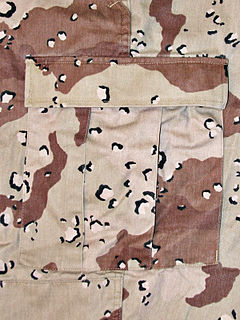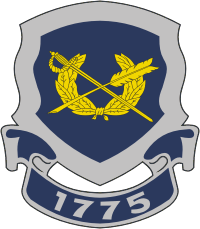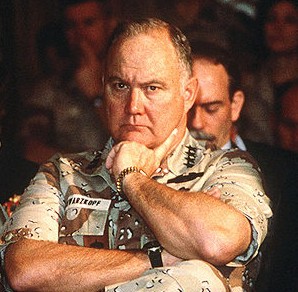
The Kuwait Military Forces consist of several joint forming defense forces. The governing bodies are the Kuwait Ministry of Defense, the Kuwait Ministry of Interior, the Kuwait National Guard and the Kuwait Fire Service Directorate. The Emir of Kuwait is the commander-in-chief of all defense forces and the Crown Prince is the deputy commander.
The Saudi Arabian Armed Forces or SAAF are the military forces of Saudi Arabia. It consists of the Saudi Arabian Army, the Royal Saudi Navy, the Royal Saudi Air Force, the Royal Saudi Air Defense, and the Royal Saudi Strategic Missile Force. The King of Saudi Arabia is the commander-in-chief of the Armed Forces and forms military policy with the Ministry of Defense and the Ministry of Interior. The five Armed Forces are among eight military forces of Saudi Arabia, with the others including the Saudi Arabian National Guard, the Saudi Royal Guard Regiment and Saudi Arabian Border Guards. In addition, there is also the General Intelligence Presidency which is the main intelligence service.

The Gulf War, codenamed Operation Desert Shield for operations leading to the buildup of troops and defense of Saudi Arabia and Operation Desert Storm in its combat phase, was a war waged by coalition forces from 35 nations led by the United States against Iraq in response to Iraq's invasion and annexation of Kuwait arising from oil pricing and production disputes.

Operation GRANBY, commonly abbreviated Op GRANBY, was the code name given to the British military operations during the 1991 Gulf War. 53,462 members of the British Armed Forces were deployed during the conflict. The total cost of operations was £2.434 billion (1992), of which at least £2.049 billion was paid for by other nations such as Kuwait and Saudi Arabia; £200 million of equipment was lost or written off.

The United States Central Command is one of the eleven unified combatant commands of the U.S. Department of Defense. It was established in 1983, taking over the previous responsibilities of the Rapid Deployment Joint Task Force (RDJTF).

Herbert Norman Schwarzkopf Jr. was a United States Army general. While serving as the commander of United States Central Command, he led all coalition forces in the Gulf War.

The Desert Battle Dress Uniform (DBDU) is a U.S. arid-environment camouflage battle uniform that was used by the United States Armed Forces from the early 1980s to the early to mid 1990s, most notably during the Persian Gulf War. Although the U.S. military has long since abandoned the pattern, it is still in widespread use by militaries across the world as of the early 2010s.

Barry Richard McCaffrey is a former United States Army officer and current news commentator, professor and business consultant who served on U.S. President Bill Clinton's Cabinet as the Director of the Office of National Drug Control Policy. He received three Purple Heart medals for injuries sustained during his service in the Vietnam War, two Silver Stars, and two Distinguished Service Crosses — the second-highest U.S. Army award for valor. He was inducted into U.S. Army Ranger Hall of Fame at U.S. Army Infantry Center at Fort Benning in 2007.

The Battle of Khafji was the first major ground engagement of the Gulf War. It took place in and around the Saudi Arabian city of Khafji, from 29 January to 1 February 1991 and marked the culmination of the Coalition's air campaign over Kuwait and Iraq, which had begun on 17 January 1991.
This timeline of United States government military operations, based in part on reports by the Congressional Research Service, shows the years and places in which U.S. military units participated in armed conflicts or occupation of foreign territories. Items in bold are wars most often considered to be major conflicts by historians and the general public.

The Judge Advocate General's Corps of the United States Army, also known as the U.S. Army JAG Corps, is the legal arm of the United States Army, established on 29 July 1775 by General George Washington. The Corps is composed of Army officers who are also lawyers and who provide legal services to the Army at all levels of command, and also includes legal administrator warrant officers, paralegal noncommissioned officers and junior enlisted personnel, and civilian employees.
Beginning during Operation Desert Shield in August 1990, while preparing for the Gulf War, the United States sent a large troop contingent to Saudi Arabia. After the war, remnant troops, primarily U.S. Air Force personnel, augmented by a smaller number of coordinating and training personnel from the U.S. Navy, U.S. Army and U.S. Marine Corps remained in Saudi Arabia under the aegis of Joint Task Force Southwest Asia (JTF-SWA), as part of Operation Southern Watch (OSW). The United Kingdom and France also maintained a small contingent of Royal Air Force and French Air Force training personnel.

Colonel Frederic L. Borch is a career United States Army attorney with a master's degree in national security studies, who served as chief prosecutor of the Guantanamo military commissions. He resigned his commission in August 2005 after three prosecutors complained that he had rigged the system against providing due process to defendants. He was replaced by Robert L. Swann

The Iraqi Armed Forces consist of the Iraqi Army, the Iraqi Air Force, and the Iraqi Navy.

Iraq–Pakistan relations refers to the foreign relations between the Republic of Iraq and the Islamic Republic of Pakistan. Cultural interaction and economic trade between Indus Valley and Mesopotamia date back to 1800 BCE. In 1955 Iraq and Pakistan joined the Baghdad Pact, a military alliance against the Soviet Union. However, when the king of Iraq was assassinated in 1958, Iraq pulled out of the Baghdad Pact, which was renamed as the Central Treaty Organization (CENTO). Tensions persisted between Iraq and Pakistan through the late twentieth and early twenty-first centuries with the Iran–Iraq War, the Gulf War, and the Iraq War. However the relations stabilized. Pakistan currently maintains an embassy in Baghdad and Iraq in Islamabad.

The Liberation of Kuwait was a U.S.-led military operation to retake Kuwait from Iraq after the massive air campaign, between 24–28 February 1991. U.S. troops and the Coalition entered to find the Iraqis surrendering en masse; however, pockets of resistance existed, particularly at Kuwait International Airport where Iraqi troops, seemingly unaware that a retreat order had been issued to them, continued to fight, resulting in a fierce battle over the airport itself. The majority of the fighting took place in Iraq, rather than Kuwait. The operation is part of what is commonly known as the Gulf War.

The United States Army Central, formerly the Third United States Army, commonly referred to as the Third Army and as ARCENT, is a military formation of the United States Army which saw service in World War I and World War II, in the 1991 Gulf War, and in the coalition occupation of Iraq. It is best known for its campaigns in World War II under the command of General George S. Patton.
Pakistan Armed Forces deployments include all Pakistani military deployments that are stationed outside Pakistan and serving in other countries. The sixth largest military power in terms of active troops, Pakistan has an extensive history of overseas military presence, especially in the Middle East, where it has maintained military contingents, missions and battalions in several states. As part of its foreign policy efforts to expand its military relations and influence in the region, Pakistan signed defence protocols during the 1970s with several Arab countries including Saudi Arabia, Libya, Jordan, Iraq, Oman, the United Arab Emirates and Kuwait, under which members of the armed forces of these countries were imparted professional training by Pakistani advisers and military trainers. Saudi Arabia signed a bilateral agreement with Pakistan on defense cooperation; during that time, there were 50,000 to 60,000 Pakistani military personnel serving abroad with the largest number of these, about 20,000, deployed in Saudi Arabia.
The timeline of the Gulf War details the dates of the major events of the 1990–1991 war. It began with the Iraqi invasion of Kuwait on 2 August 1990 and ended with the Liberation of Kuwait by Coalition forces. Iraq subsequently agreed to the United Nations' demands on 28 February 1991. The ground war officially concluded with the signing of the armistice on 11 April 1991. However, the official end to Operation Desert Storm did not occur until sometime between 1996 - 1998. Major events in the aftermath include anti-Saddam Hussein uprisings in Iraq, massacres against the Kurds by the regime, Iraq formally recognizing the sovereignty of Kuwait in 1994, and eventually ending its cooperation with the United Nations Special Commission in 1998.

Cannabis usage is currently prohibited in the United States military, but historically it has been used recreationally by some troops, and some cannabis-based medicines were used in the military as late as the twentieth century.


















